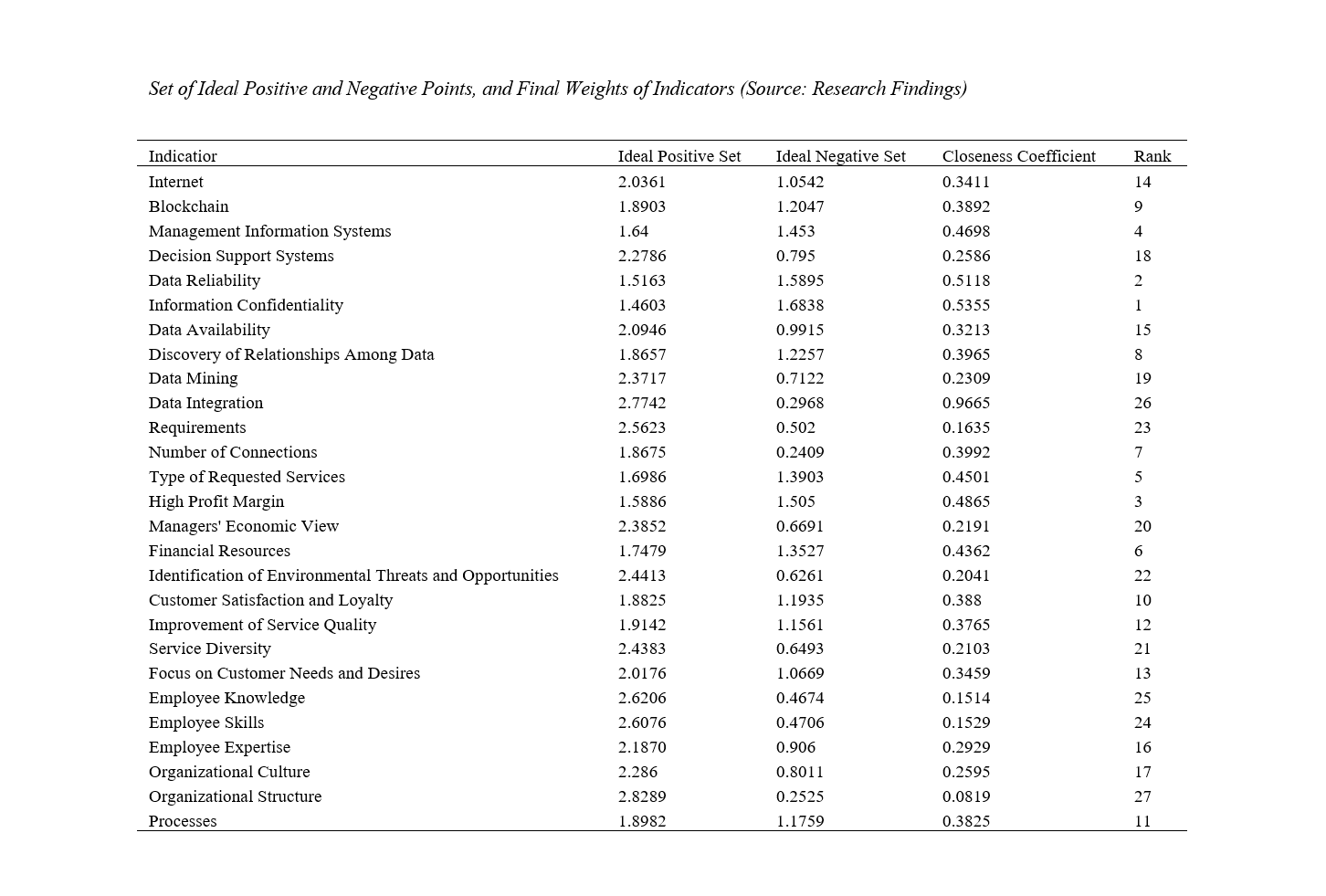Identification and Ranking of Business Intelligence Components Using the Fuzzy TOPSIS Technique
Abstract
Objective: The primary objective of this research is to identify and prioritize the components of business intelligence within subsidiaries of the National Bank by employing the fuzzy TOPSIS technique. This endeavor aims to establish a foundation for presenting a scientific approach to enhance business intelligence capabilities.
Methodology: This study adopts a mixed-methods approach, initially gathering qualitative data through semi-structured interviews with senior managers from the bank's subsidiaries, followed by quantitative data collection using questionnaires. The fuzzy TOPSIS method was employed to handle the inherent ambiguity and uncertainty in the data, with linguistic variables used to represent the acceptability of each business intelligence component.
Findings: Final model was including the dimensions of technical factors (components of information tools, characteristics of information and data, and analysis), business factors (components of stakeholders, economic and financial factors, and customer orientation), and intangible factors (including components of human capital and organizational capital) and 27 indicators. Subsequently, the identified components were ranked using the fuzzy TOPSIS technique, ultimately selecting "information confidentiality", "data reliability", and "high profit margin" as the most important indicators.
Conclusion: It can be concluded that the dimensions of innovation in online advertising and its implications in digital marketing are interpretable, and legal supports for innovation in online advertising through the enforcement of laws, enactment and amendment of specific laws and regulations for digital marketing, removal of legal barriers to investment, revenue generation, and clarification of legal ambiguities and definitions in digital marketing are effective.
Downloads

Downloads
Additional Files
Published
Issue
Section
License
Copyright (c) 2024 Alireza Yaghoobi (Author); Vahidreza Mirabi (Corresponding Author); Seyed Mehdi Jalali (Author)

This work is licensed under a Creative Commons Attribution-NonCommercial 4.0 International License.















